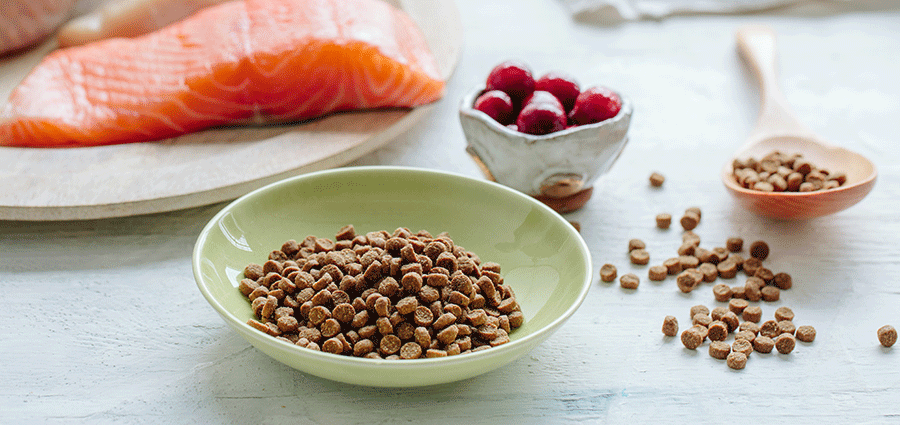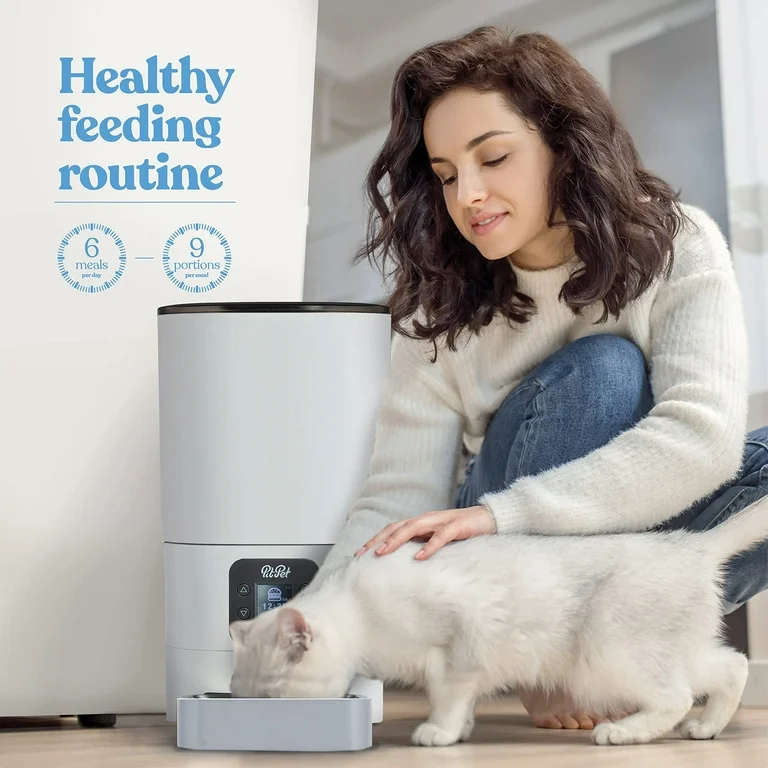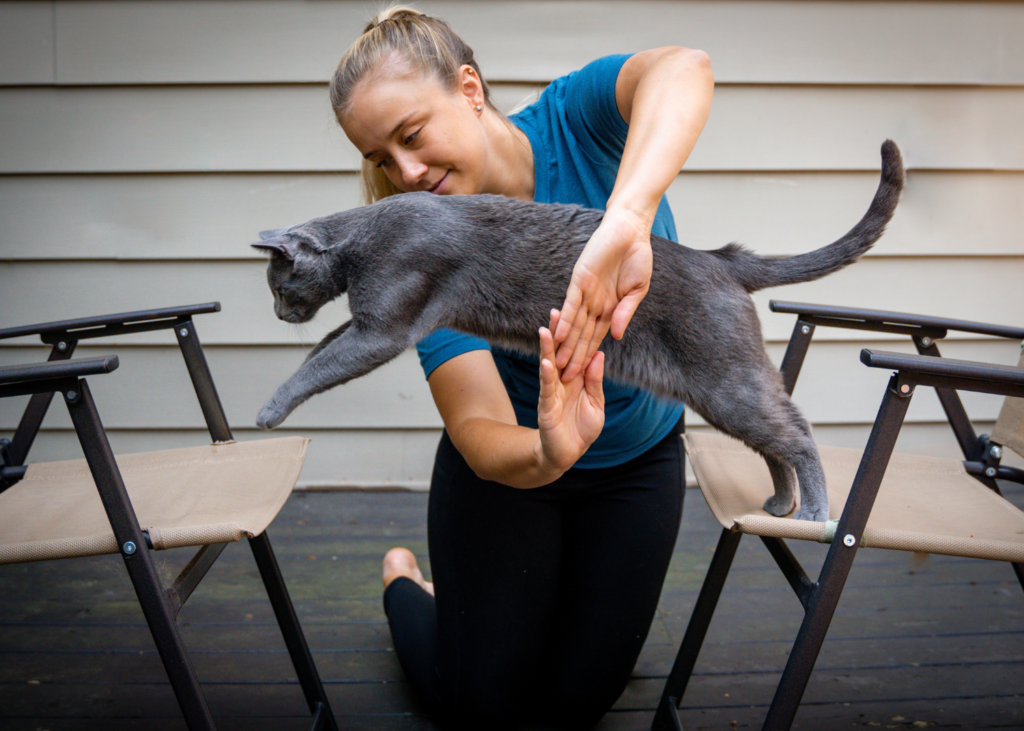Introduction
If you’re a cat parent, you’ve probably seen those pleading eyes whenever you’re eating something delicious. While it’s tempting to share your food, not everything we eat is safe for our feline friends.
→ Cat Food

Some human foods are completely safe for cats in moderation, while others can cause serious health problems — even in small amounts.
In this guide, we’ll explore:
- What human foods are safe for cats
- Which foods to completely avoid
- Signs of food poisoning in cats
- Vet-approved feeding tips for a healthy feline diet
Let’s dive in and make sure your kitty stays both happy and healthy!
Safe Human Foods Cats Can Eat (In Moderation)
Here are some human foods that are considered safe for cats — if given occasionally and in the right way:
1. Cooked Chicken
A lean protein that cats love! Make sure it’s cooked without spices or sauces and remove all bones.
2. Eggs (Boiled or Scrambled)
Rich in protein and healthy fats. Never serve raw eggs due to the risk of salmonella or biotin deficiency.
3. Plain Rice
Easily digestible and helpful if your cat has an upset stomach. However, rice has no real nutritional value for cats.
4. Pumpkin
Great for digestion. A small spoon of plain, cooked pumpkin (not pie filling) can help with constipation or diarrhea.
5. Cucumber
A refreshing snack for overweight or curious cats. It’s high in water and fiber.
6. Carrots (Cooked)
Safe and healthy in small amounts. Raw carrots may be too tough and a choking hazard.
7. Fish (Cooked Salmon or Tuna)
A favorite among cats. Rich in omega-3s, but must be cooked, boneless, and not canned with salt or oil.
8. Cheese (Very Small Quantities)
Some cats tolerate cheese well, but many are lactose intolerant. Only offer it occasionally and in tiny bits.
Next Read: Top 10 Reasons Why Cats Are the Best Pets – A Cat Lover’s Guide
Human Foods That Are Toxic or Unsafe for Cats
Even a small amount of these foods can be harmful, or even deadly, for your cat:
1. Chocolate
Contains theobromine and caffeine — both are toxic to cats. Dark chocolate is especially dangerous.
2. Onions and Garlic (Raw, Cooked, or Powdered)
These can destroy a cat’s red blood cells and lead to anemia.
3. Alcohol
Even a tablespoon of alcohol can cause severe liver and brain damage. Never let your cat near alcoholic beverages or food cooked with alcohol.
4. Caffeine (Coffee, Tea, Energy Drinks)
Cats are highly sensitive to caffeine. It can cause rapid heart rate, seizures, and even death.
5. Grapes and Raisins
Highly toxic to cats, they can cause kidney failure — even in small amounts.
6. Cooked Bones
These can splinter and lead to choking, internal injuries, or blockages.
7. Fat Trimmings and Grease
Too much fat can lead to pancreatitis and obesity in cats.
8. Raw Dough (with Yeast)
Yeast expands in the stomach, which can cause bloating and alcohol poisoning.
9. Xylitol (Artificial Sweetener)
Found in sugar-free gum, candy, and baked goods. It can cause insulin release, leading to liver failure.
Signs of Food Poisoning in Cats
If your cat eats something toxic, symptoms may appear within a few hours. Be on the lookout for:
- Vomiting
- Diarrhea
- Loss of appetite
- Drooling or foaming at the mouth
- Seizures or tremors
- Lethargy or weakness
- Pale gums
- Difficulty breathing
What to Do:
Call your vet immediately or contact a pet poison control hotline such as the ASPCA (888-426-4435).
How to Introduce Human Food to Your Cat Safely
- Always introduce new foods gradually.
- Keep portions very small.
- Avoid seasoning or additives.
- Never replace balanced cat food with human food.
- Watch for allergic reactions or digestive upset.
Tip: The safest way to treat your cat is to use specially made cat treats or vet-approved snacks.
When to Talk to Your Vet
- If your cat has special dietary needs
- If your cat is overweight or has allergies
- Before offering new foods, especially if your cat is a senior or on medication
Your vet can help you design a diet that’s both nutritious and safe.
Final Thoughts
Cats are curious, and it’s natural to want to share your food with them. But while some human foods are perfectly safe in moderation, others can be life-threatening. Understanding what’s safe — and what’s not — can help you protect your pet’s health and ensure a long, happy life together.
When in doubt, always check with your vet before feeding your cat something new.







